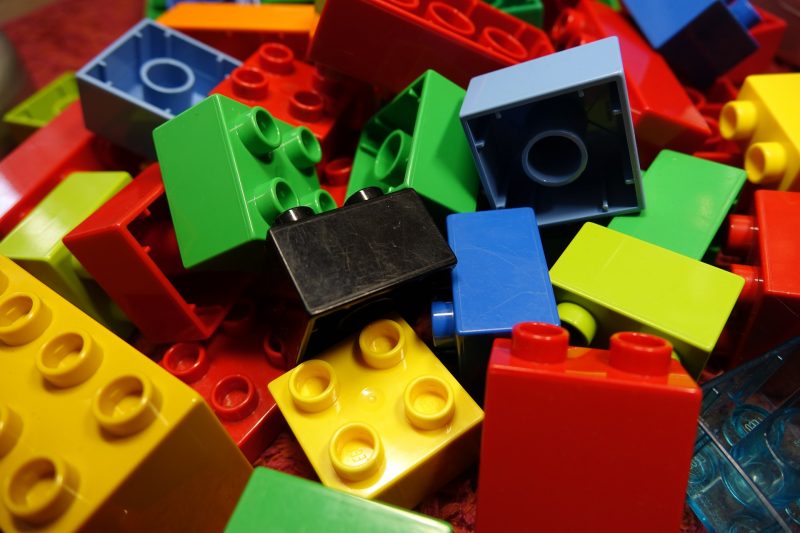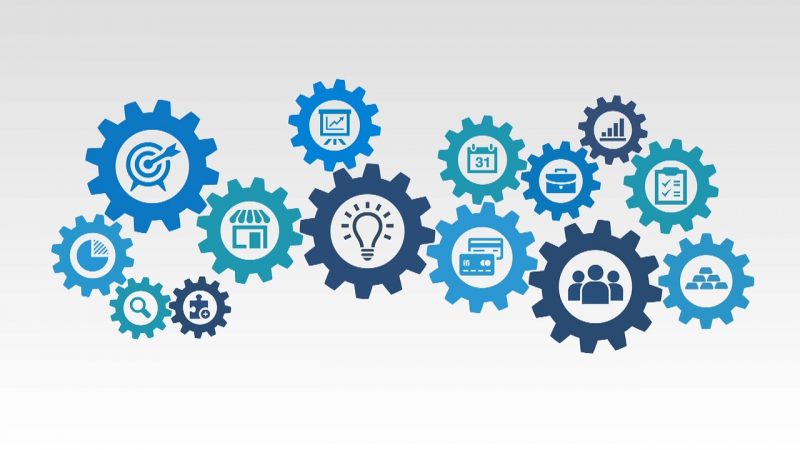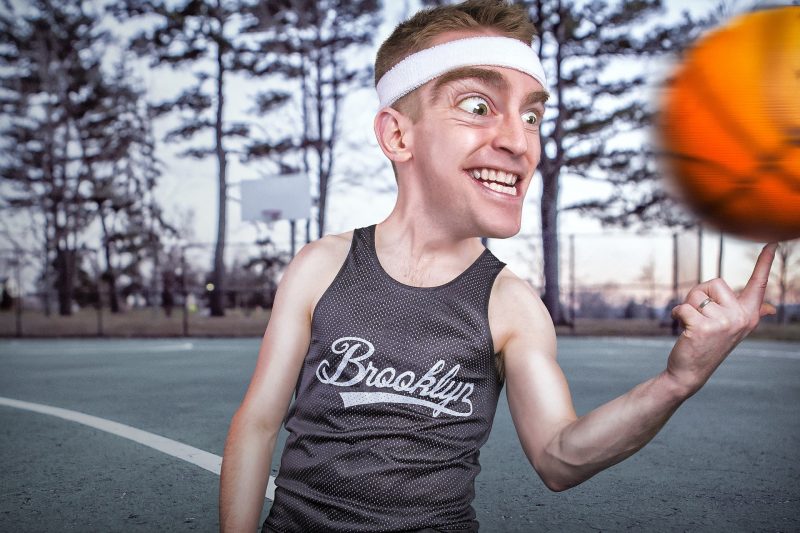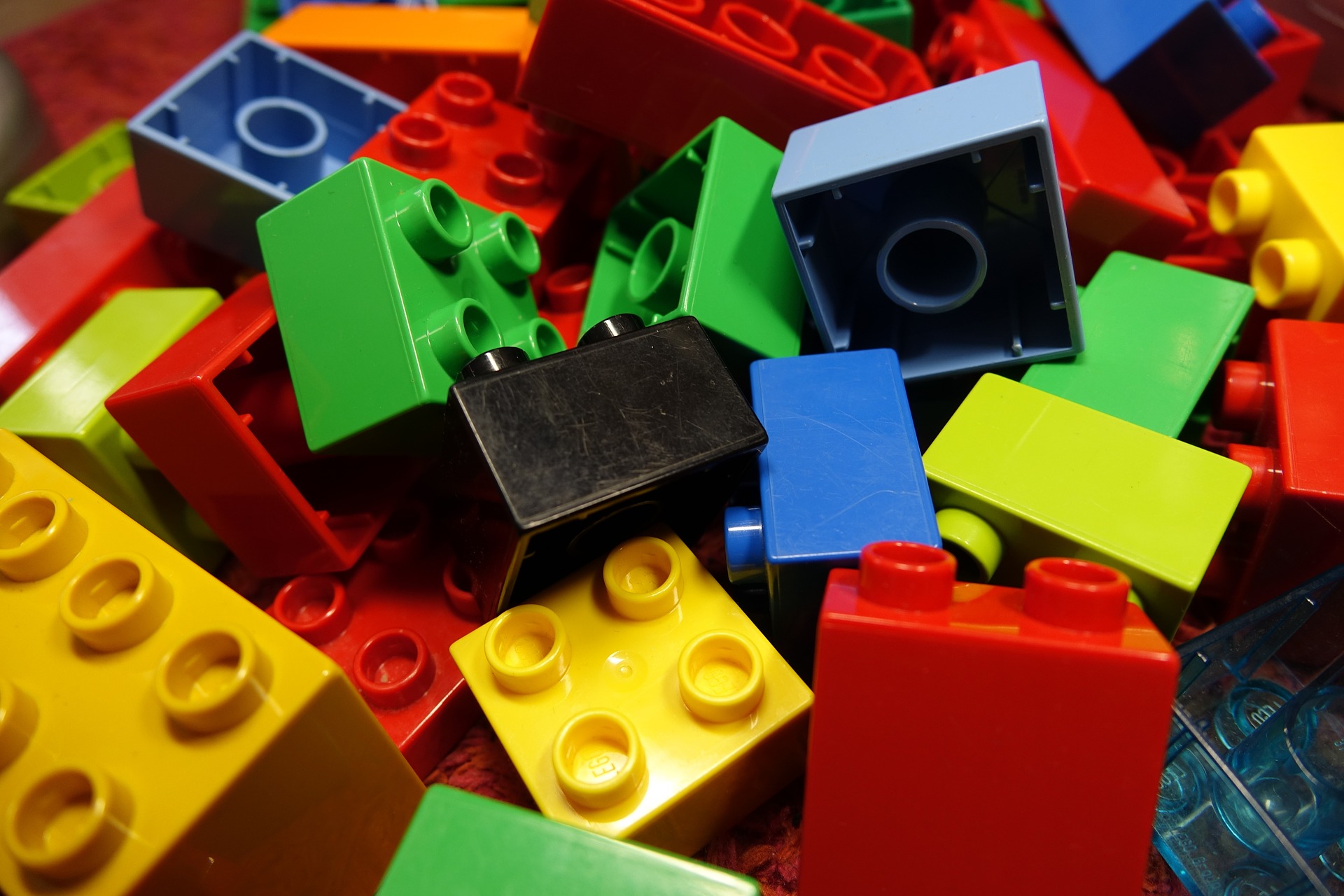Since the dawn of the esports scene, athletes have been looking for the perfect way to achieve greatness in their game. From gaming-houses to hermit-lifestyle, a vast array of attempts has been made to crack the code of “the perfect gaming lifestyle”.
This article will not attempt to give a recipe for the “perfect esports athlete’s life”. Instead, it is a different take on how esports athletes can think about their scheduling and prioritizing of their time.
Beneath, five major factors in a young esports athletes’ life will be examined. The idea is to give food-for-thought for the reader’s considerations about their own career and work/life balance.

Building block one: Gaming/training
The major way that most esports athletes improve their gaming-skills are of course by playing their game, a lot. There is no way around this point – if you want to get good at a game, you have to play it!
One of the questions we most often hear is: how many hours per day should I spend on gaming? The answer is simple: enough time to succeed in two things – maintaining your current level of skill and enough to reach the next level that you are currently trying to achieve.
Let’s break those two down.

Enough to maintain your skill level
In all professional endeavors, you simply have to keep practicing your skills and competencies for them to stick. A great example is firefighters, who often have drills to make sure they stay sharp in their training. The same thing applies to esports athletes – if you want to maintain your skills, you have to play the game often.
Maintaining your skills is not the same as learning a new skill. It is simply keeping your “muscles tight and ready”.
This kind of training does not take a lot of energy, as you rely on what you already know. It is a great way to train, when your energy is low, or when you have to work on something energy consuming later that day.
It is different from the next training described below:
Goal oriented training
The other part of training is the part that takes you to the next level. It is the training that takes its onset in your planned development.
To make it clear, let’s begin with an example: You want to get a better aim in the FPS you’re playing. Therefore you start out your training by studying exactly how you can become better at that. You might use an online tutorial, or you might experiment with your own strategy to become better. Then you implement that strategy into your training, working systematically to overcome your shortcomings and power through frustration. It will take some time, but with discipline and vigilance, you will see results.
This takes planned action, patience, and constant reflection. In other words, it takes a lot of mental energy. Remember – the brain uses more energy and oxygen than any other organ and muscle in the body, so a mental workout will drain you as much as a physical one.
Therefore, it is advisable to plan a dedicated amount of time to practice this kind of training. Preferably, you will want to practice this way, when your energy is at its highest.
Another important consideration to take into account is the way you break down the goal you are trying to achieve. If you want to become better at aiming, it is not enough to just try your best at aiming better. You have to break it down into measurable pieces: muscle control, mouse-settings, moving targets, stationary targets, prediction, peaking, etc. etc.
breaking it down into measurable pieces will give you the chance to work on ONE THING at the time. Since multitasking is impossible, you will have to move one skill at the time from conscious action into unconscious action. For example, when you have practiced your aim against moving targets for a period of time, you will not have to spend the same amount of mental energy to calculate how fast it moves – it will be an automatic reaction for your to line up your shot perfectly. But it will only come with planned training.
This is the marvel of the human brain: it has the best learning capacity in the animal kingdom. Use it! But don’t abuse it, by trying to learn everything at once.
Experiment with how many planned training sessions you can have in one day of training. Be mindful of when you become too tired to achieve the training. When you do, take a break, switch your focus, and remember – tomorrow is another day!
Be aware!
The above classifications are rough categories meant for simplification of the training process. Of course, there is some learning in the maintenance training, and there is maintenance in the goal-oriented training. The division of the two in the above is for clarification of the differences between the way you have to train to work on both categories.
Building block two: hobbies
The human brain is not made to do just one thing all the time. It thrives on diversity. It craves new inputs. Therefore, it is a great idea for esports athletes to have a hobby outside of their gaming career.
A reaction many athletes have on moving into a professional gaming lifestyle is that they are sad that they lost the enjoyment they once had from just playing the game. One reason for this is that they have gone from “playing” to training. But an athlete should be aware that there are other hobbies that can fill this void, and even help them become better esports athletes at the same time!
Hobbies can be anything – the key is that it brings joy and diversity into one’s life. Since hobbies are not exactly nuclear science, we will just bring a few examples of hobbies that can actually help the athlete grow as a gamer as well.
Music – playing an instrument has many relations into playing a video game. Especially the integration of theory into practice, that is at the center of music, can be transferred into gaming. Along with creativity, communication, teamwork, and discipline, there is a multitude of reasons to pick up an instrument and learn to play – but remember to keep it fun!
Reading – for centuries, reading has been one of the preferred hobbies of millions. Being able to lose yourself into a well-written story, moving at your own pace and with time to reflect.
Benefits of reading are many – in an eSports context, creativity might be one of the best ones. Also, the inspiration one can get from reading others experiences and stories can be valuable, when practicing ones esports career. The more references you have to any given situation, the bigger your fields of possible actions are!
Sports – believe it or not, there is not a war between sports and esports. There might be some politicians and crazed parents out there calling esports the devil, and sports the saint, but let’s agree to look beyond that.
Sports are a great hobby for anyone. Teamwork, personal achievement, structured training, socializing and physical workout are just a few of the positive factors that can benefit and esports athlete when doing sports as a hobby. Be careful you don’t break a finger, though…

Get a hobby to get some time away
The last comment on hobbies will be this: hobbies are a great way to get away from the gaming environment on a regular basis.
It can be near impossible to reflect on something if you are constantly caught up in the same thing. Getting time away from it, to clear your mind, is a great resource for an esports athletes’ career.
Remember to plan time for your hobbies, and make it a priority!
Building block three: restitution
First of all – get some sleep. As psychologists, we always favor personal choice and the individualistic approach. But one thing that is just plain dumb to claim is that sleep is less important than training. It is not.
Sleep is one of the best documented psychological factors when it comes to wellbeing, learning, patience, cognitive skills, processing, communication, teamwork and so much more.
There’s no way around it: Get. Your. Sleep. If you don’t know how much, a good rule of thumb is 8 hours per night.
Restitution is more than sleep though. Restitution is any activity that helps your physical and psychological reserves to replenish. That means that watching a movie on the couch is actually not just procrastinating. It is also a way to relax your brain.
One of the best ways to get a “quick” restitution in a stressful day-to-day life is meditation. There are many ways to meditate, but the essentials are that you lower your blood pressure and lower your stress levels.
One suggestion is to get a noise-canceling headset, find a somewhat quite space, inform people around you to leave you alone for 10 minutes and then just focus on your own breath for those 10 minutes. Every time your focus wanders away from your breath, just accept it, and refocus on your breath. Yes – it is boring! That’s the point: give your brain some rest and re-enter your work with replenished resources!
Another great way to rest is to go for a walk, alone. Bringing a headset with some music can be great, but try it without that. Leave your phone at home. Steer away from the busy city, and just walk 30 minutes, without any interruptions. Sounds boring? Good – then you know it’s working.
The point of restitution is to spend so little energy that your brain can start doing its “maintenance”. You might notice how thoughts about your recent experiences tend to pop up in your train-of-thought when you get bored. That’s one of the brains reactions to restitution – it helps the brain to put the experiences of the day into the long-term memory and thereby gives you learning. The thoughts popping up are thought to be consequences of this process. At least it’s what some research about restitution says. On the other hand, all research about lack of restitution points towards stress, zombie-like stages, and even mental disorders. So, the point is clear – rest!
How much? 8 hours per night, plenty of small breaks during the days work and 1-2 meditation breaks per day. More than that, the 8-hour work day is a good thing for esports athletes to mimic as well, as it has proven worthwhile for professionals in all fields (even sports). The basics for everyone are: don’t overwork yourself!

Building block four: Education
One of the things we have discussed the most with esports athletes who are still teenagers is education. The general approach of many athletes is that school can wait, but gaming is only possible right now in their life. And there is some merit to that – of course, it won’t be easy for them to wait until they are 30 to start their gaming career. But we will argue that education holds some factors that are beneficial for the athlete in multiple ways.
Before we look at some of the beneficial factors, we will start by advising young esports athletes to consider attending school at an educational facility that offers esports optimized educational paths. In Denmark, more than 100 schools are already offering this, and the rest of the world is following after. It is a great way to learn how to utilize esports in multiple ways and to get a basis of education that can be built on later in life.

Let’s look at two major positive impacts of education on the esports athlete’s life:
Socialization: if you want to have a great career in esports, you simply have to be a great socializer. Knowing how to act socially is important in teams, organization, in the press, at events, competitions and really everywhere else. If you spend most of your time just socializing with the people you also play with, you will most likely not develop the skills needed to be a social navigator, that can handle more social situations a lot better. Participating in an educational setting will force you to develop better social skills. You will have to engage in school work with others, honing your team-working skills. You will have to adjust yourself to manage relations with people you wouldn’t otherwise engage ag with.
Transferable skills: anyone who has had any kind of education knows that you have to learn new strategies to overcome new problems. The first time we learn to add something together, we use a slower strategy than we do the 1000th time we do so. We learn new strategies for overcoming problems. The skills and competencies required to do so are transferable to esports. Esports is constant problem solving and constant strategy evaluation: “I know that my opponent is right behind this box, but he knows I am here as well. How do I kill him without him killing me first?” A problem is set up. “If I throw a flashbang, he will be blinded while I shoot him”. A strategy to overcome the problem is created (it might seem simple, but if you had never received any kind of education, this would have been a slower process!).
This is just two examples of how education can help you. A lot more research is being done on this subject, and the future will hold exciting new knowledge for us to build upon!
Building block five: social life
Something that is hard to factor into an esports career, is a social life outside gaming. Yet, there is still a lot to gain from maintaining a social life with friends and family, even though you got to get those frags!
First off, keeping your family close is a good idea for a lot of athletes. The emotional support, the safe space and the genuine recognition of who you are, can be nearly impossible to get anywhere else. As someone cover once said: you must know where you come from, to understand where you are going.
Friends are also important, as they can help you relax, challenge you, keep you rooted and make you forget all your worries. Some say “keep your friends close, but your enemies closer”. That’s garbage if you ask us. We say: “keep your friends closest and take out your enemies in-game!”.
Lastly; relationships are the foundation of many great things in life. Having a significant other (or more, we don’t judge), gives you a place to rest, to develop, to love, to laugh, to live. Balancing a career and a relationship is without a doubt not easy. But the payoff of growing together with another human being, getting to understand them, and being understood intimately, is beyond what other relations in life can offer. We hope for anyone out there that they get to experience this, and are capable of seeing how much it can impact any other area of life positively.

Design a life you want to live – and don’t be afraid to experiment!
The closing remark of this article is this: you are the engineer in charge of constructing your own life. Be experimental in trying out what works for you. Be brave when breaking your comfort zone – comfort is the enemy of development! And remember to love yourself before you love anyone else. If not, you’ll end up giving all you have, but don’t unable to receive anything in return.
And as always: master yourself so you can master the game.


